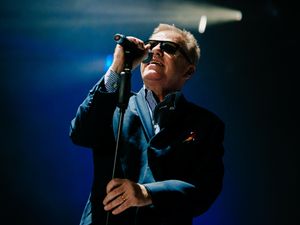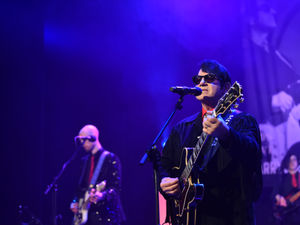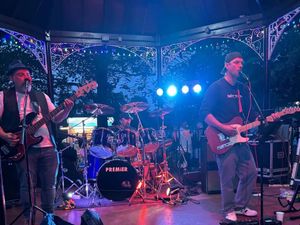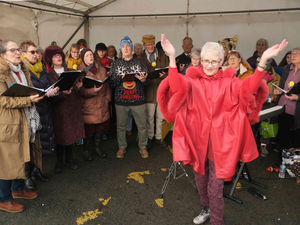'I’ve never stopped, really': The Style Council's Anthony Harty talks ahead of Birmingham show
He was just a kid when he found himself catapulted towards success.
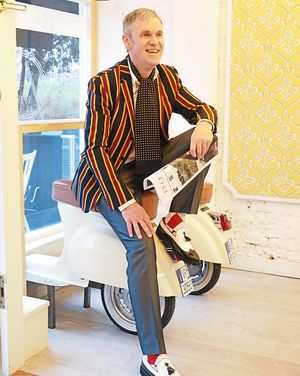
Anthony Harty was 16 when he joined Paul Weller’s post-The Jam outfit, The Style Council. He literally went from the playground to the top of the charts as the band banged out hits like Long Hot Summer, Walls Come Tumbling Down and Shout To The Top.
Harty joined when he was 16.
“Basically when I left school in April ’83,” he says. “A friend of mine suggested I write to Paul Weller to see if he wanted a bass player.
“I sent him a tape of me playing bass to Speak Like a Child. I did two auditions and I was on the road by September.”
Harty spent his 17th birthday on a plane to Japan. It was, in a word, crazy.
“Things progressed and I toured with them until 1985, until just before Our Favourite Shop.”
There was no rancour when he left the band. He was neither sacked nor did he resign.
“It came to a natural end, really. Paul wanted to work with lots of different players and he played a lot of bass on the recordings, so I didn’t jump and I wasn’t pushed.”
That start, however, proved priceless and the bassist from Coventry has been on the road ever since.
He joined The Truth and supported The Hooters and T’Pau, he played on The Primitives last RCA studio album with producer Tony Phillips, and he completed the line-up of the reformed Badfinger for Bob Jackson, an original member. More work followed.
He played alongside Horace Panter in SpecialBeat - an amalgam of The Specials & The Beat – touring the world with Steel Pulse, then with Sting on The Soul Cages tour. There was a gig with reggae legend Lee Scratch Perry, which earned Harty a Grammy Award, and he went on to play in the UK and Europe with 2Tone Collective, with ex-members of The Specials, Selecter, and The Beat, before signing up with Hazel O’Connor.
“I’ve never stopped, really,” he says. “But I’ve always had a soft spot for The Style Council. Doing something with those songs has always been in the back of my mind.
“So I got in touch with some of the guys who were in the band and had also played with Alison Moyet, Dexys and all sorts of people. They were all into it and we put the band back together.
“Basically, it’s pretty much the same line-up – just without Paul on vocals.”
Playing in an international rock’n’roll band was an eye-opener for Harty, who was joined at the time by long-time Weller drummer Steve White. “Steve was only 17 as well, so the bus was more like a youth club. We travelled with our stage manager and Paul’s dad, John, so there were guys looking after us. They’d iron our shirts and keep us in line. I remember after one gig in New York telling them I was going to go out on the city after a show. John told me I wasn’t, he said I’d be eaten alive. To describe it as being in at the deep end is an understatement.
“I became a young man when I was on the road and I’m not entirely sure how I survived. But since then I’ve always played and I’ve been with over 100 bands and artists and won a Grammy, which was huge, as well as doing Madison Square Gardens with Sting.”
Harty remains a massive fan of Weller and has only fondness for the guy who answered his job application. Now he is back on the road playing some of the old songs in From The Style Council.
“I was a massive Jam fan back then and I’m a massive Weller fan now,” he adds. “Paul was absolutely onto everything. Songwriting-wise, he was brilliant. He knew what he wanted to do. He wanted the right people around him and we were very privileged to be in that position. We are absolutely thrilled to be playing the old stuff back because it’s still brilliant.”
When Weller formed The Style Council he was influenced by Chairman of the Board, Sly and the Family Stone, The Isley Brothers and more.
“We all loved it. My two years were the most successful period for the band because Paul was so prolific. So it’s great to be playing the songs that we loved back then. I’ve been sold on this idea for a while and it’s great that the rest of the guys are so enthusiastic about it.”
Though the players are now considerably more mature than teenagers, they’ll still play with the gusto they had back then.
“The attitude that we had when we were playing live when we were young was that you came off the stage with a wet shirt, you put a performance in and came off dripping with sweat,” he says.
“You didn’t stand there like a lamp post. I’ve always wanted to do that, no matter who I’ve played with. And it’s the same now. We wanted to be the ones who brought these songs back to life – you hear the tribute bands and all that and they’re just not good enough.”

